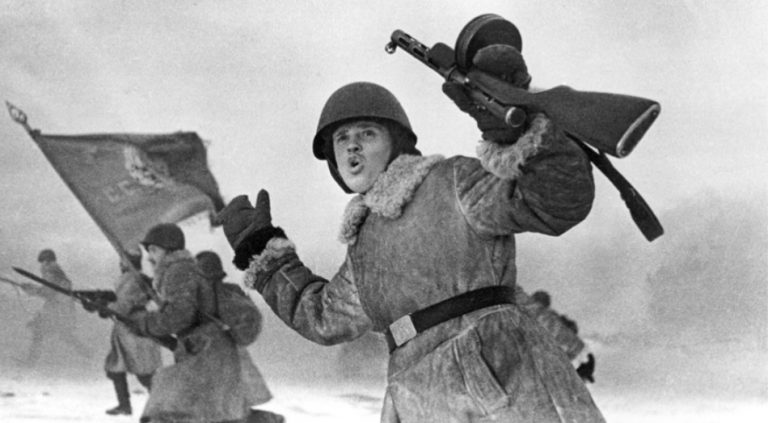
 Poetry is sometimes closer to dramatic truth than history itself. Around 27 million Soviet citizens died in WWII, according to official estimates. Even though words can hardly wipe out the traumatic experiences behind them, luminaries of Russian poetry paid tribute to Soviet Union’s role in defeating Nazi Germany, helping the younger generations to never forget the sacrifices of those who perished in the war.
Poetry is sometimes closer to dramatic truth than history itself. Around 27 million Soviet citizens died in WWII, according to official estimates. Even though words can hardly wipe out the traumatic experiences behind them, luminaries of Russian poetry paid tribute to Soviet Union’s role in defeating Nazi Germany, helping the younger generations to never forget the sacrifices of those who perished in the war.
BY VALERIA PAIKOVA
- ‘The Forties’ by David Samoilov (1920-1990)
Samoilov (born Kaufman) is regarded as one of the leading Soviet poets of WWII. His poems depicted the horrors of war and the struggle for peace, the joy of living before the war and the daily concerns of a young soldier in the thick of the action.
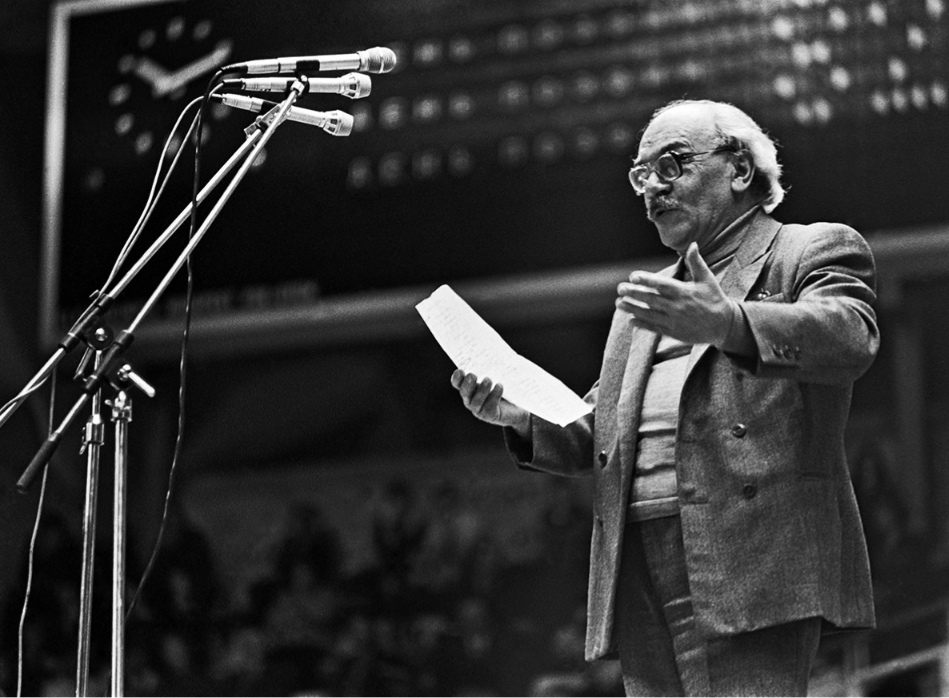
Samoilov took part in the war and was wounded several times in combat. The theme of the war, its aftermath and how it impacted the lives of millions, ran like a scarlet thread through his poetry.
‘The Forties’
The forties, fateful,
Warring, frontline,
With funeral notices,
Clattering trains
The hum of the rails
All is cold, high and barren.
Their houses have burned —
They’re heading east.
That’s me at the station
In my scruffy wool cap
The star’s not standard issue —
It’s cut from a can.
Yes, here I am in the world,
Skinny, happy, carefree
I’ve got tobacco in my pouch —
I have a stash of rolling papers.
I joke with the girls,
And limp a little overmuch.
I break my rationed bread in half,
And I know everything on earth.
Imagine! What coincidence —
War, horror, dreams and youth!
And all of it sank deep inside me…
And only later did it wake.
The forties, fateful,
Lead and gun smoke…
War wanders through the land.
And we are all so young!
(Translated by Boris Dralyuk)
- ‘How They Killed My Grandmother’ by Boris Slutsky (1919-1986)
Slutsky, who fought in the Second World War, was a poet of sharp lines and precise formulas, like the following:
When we returned from the war
I realized that we are not needed.
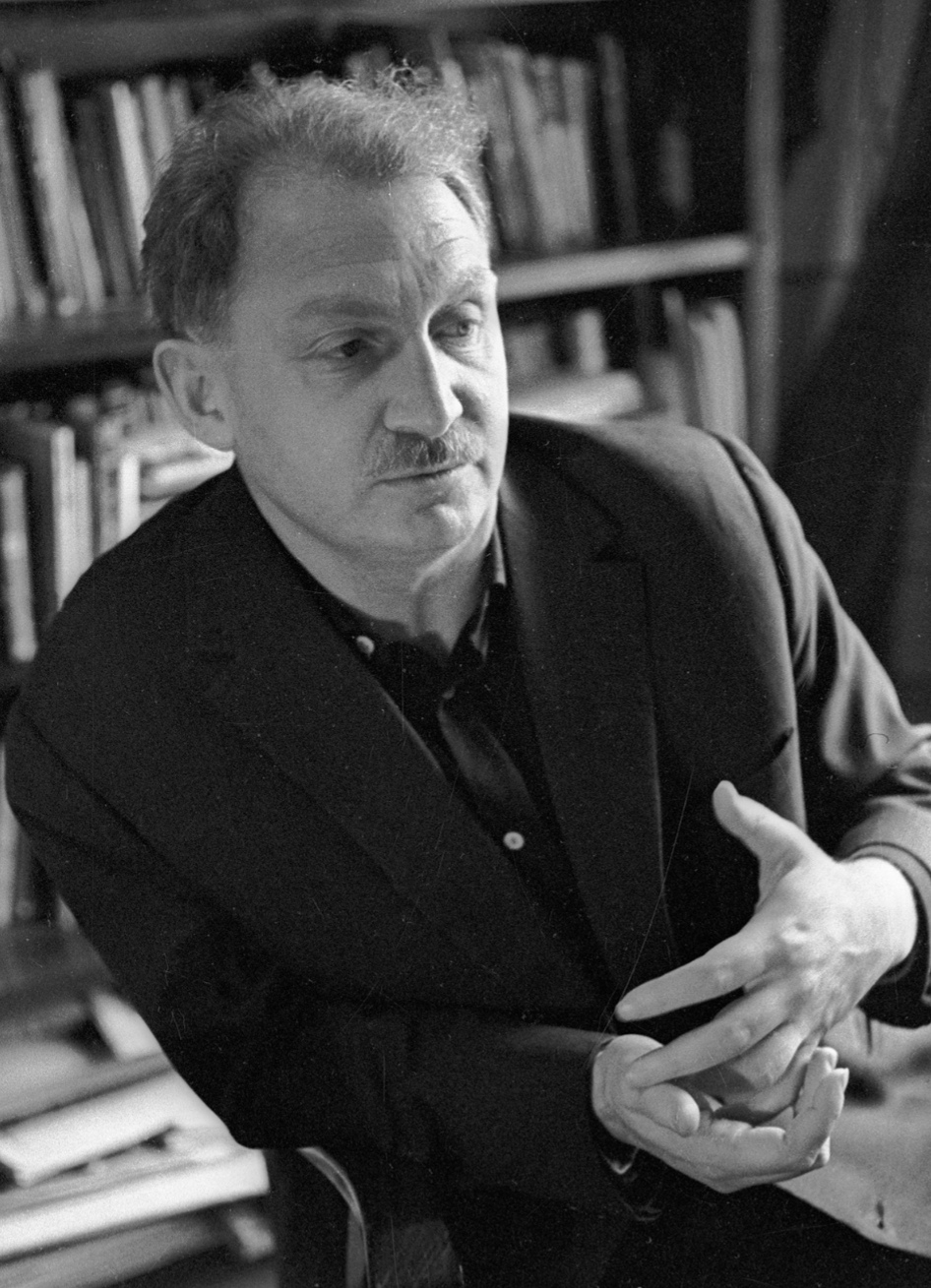 Slutsky was seriously wounded in the war. He suffered from severe headaches and underwent two craniotomies. Nobel laureate Joseph Brodsky was one of the first to fully understand the scope and uniqueness of Slutsky’s poetic talent. The poet was never ashamed or afraid of his Jewish ancestry.
Slutsky was seriously wounded in the war. He suffered from severe headaches and underwent two craniotomies. Nobel laureate Joseph Brodsky was one of the first to fully understand the scope and uniqueness of Slutsky’s poetic talent. The poet was never ashamed or afraid of his Jewish ancestry.
In the long run, it was Slutsky who, almost single-handedly, changed the sound of post-war Russian poetry, Brodsky believed: “The feeling of tragedy in his poems often shifted, against his will, from the concrete and historical to the existential – the ultimate source of all tragedies. This poet really speaks the language of the 20th century. His intonation — harsh, tragic and dispassionate — is the way a survivor calmly talks, if he wants, about how he had survived.” Although he rarely wrote poems during the war, Slutsky became one of the key war-generation poets.
‘How They Killed My Grandmother’
How did they kill my grandmother?
This is how they killed my grandmother:
In the morning a tank
Rolled up to the city bank
One hundred and fifty Jews of the town
Weightless
From a whole year’s starvation
Pale,
With the pangs of death upon them
Came there, carrying bundles.
Polizei and young German soldiers
Cheerfully herded the old men and old women,
And led them, clanking with pots and pans.
Led them
Far out of town
But my diminutive grandmother, Lilliputian,
My seventy-year-old grandmother,
Swore at the Germans,
Cursed like a trooper,
Yelled at them where I was.
She cried: “My grandson’s at the front.
Just you dare Lay hands on me.
Those are our guns
That you hear, Bochel!”
Grandmother wept and shouted
And walked
And then started
Shouting again
From every window rose a din.
Ivanovs and Andreyevnas leant down,
Sidorovnas and Petrovnas wept:
“Keep it up, Polina Matveyevna!
You just show them. Give it them straight!”
They clamored:
What’s there to be so scared about this German enemy!
And so they decided to kill my grandmother,
While they were still passing through the town
A bullet kicked up her hair.
A grey lock floated down.
And my grandmother fell to the ground.
That’s how they did it to her.
(Translated by Daniel Weissbort)
- ‘Winner’ by Boris Pasternak (1890-1960)
Nobel laureate Boris Pasternak realized his full literary genius first and foremost as the author of ‘Doctor Zhivago’, an epic love novel that spanned forty years of Russian history, including two world wars.
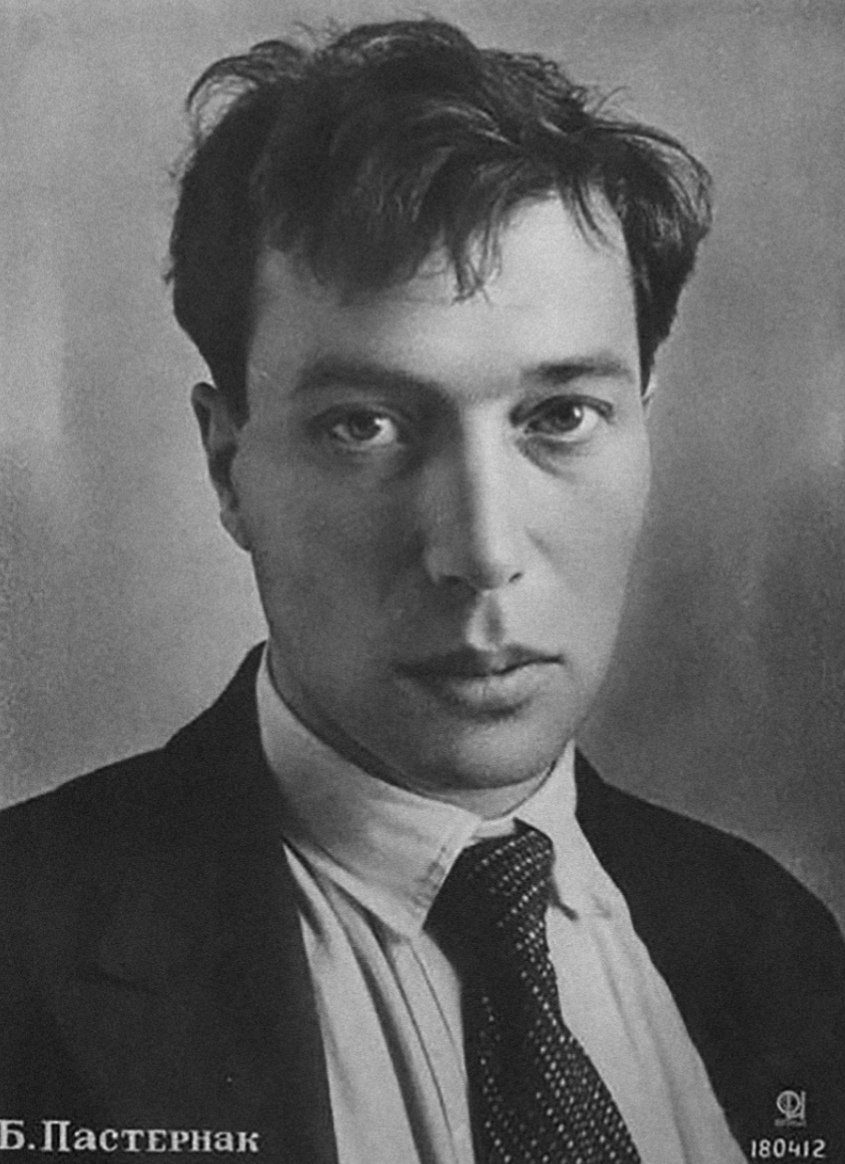 In poetry, Pasternak’s singular talent manifested itself in his paradoxical, three-dimensional perception of the world, love of puns and almost maniacal attention to detail.
In poetry, Pasternak’s singular talent manifested itself in his paradoxical, three-dimensional perception of the world, love of puns and almost maniacal attention to detail.
In 1944, Pasternak wrote a tragic poem depicting one of the most heart-wrenching events of WWII – the Siege of Leningrad – which claimed the lives of one million people, many children among them. During their 872-day ordeal, which lasted from September 1941 to January 1944, Leningrad (present-day St. Petersburg) residents had to survive with no water, heating, electricity or food. Surrounded by advancing German forces, they refused to surrender and stayed in their homes. Most died of starvation during the blockade. Pasternak described the signature grandeur of the city and its citizens in his powerful poem.
‘Winner’
Do you remember dryness in a throat?
When, clanking with a naked power of evil,
Towards, with shout, they were going,
And autumn was a step of test of being?
But rightness was a fence of such a shield,
That no any armor could reach well.
The destiny of Leningrad was yield —
It was the wall in eyes of all defenders.
The moment has come — a fair goal:
The ring of siege was opened at last.
The whole world is crowding around,
And looks in his face with a strong delight
How marvelous he is! Immortal lot!
The chain of legends now has its link!
All that is possible in skies and earth
Was carried out and withstood by him.
(Translated by Lyudmila Purgina)
- ‘Conversation With A Neighbor’ by Olga Bergholz (1910-1975)
If there is one woman who proved a vital force when it came to helping encourage people during the Siege of Leningrad, it was Olga Bergholz. In November 1941, she and her husband, who was seriously ill, were to be evacuated from Leningrad, but the man died of starvation and Olga, a promising poet, remained in her native city alone.
 Bergholz was no stranger to tragedy. She had previously lost two daughters (Olga was pregnant with her third child when she was arrested and tortured in prison in 1937 and had lost her last child). During the Siege of Leningrad, she had literally nothing to lose.
Bergholz was no stranger to tragedy. She had previously lost two daughters (Olga was pregnant with her third child when she was arrested and tortured in prison in 1937 and had lost her last child). During the Siege of Leningrad, she had literally nothing to lose.
Compassionate and full of empathy, Bergholz was the voice broadcasting on the one working radio station during the blockade. Her voice kept millions alive during those devastating days. Olga read her own poems and those of other poets, delivered news from the battlefield and encouraged the besieged citizens of Leningrad not to give up. She witnessed heroism and determination and described what she saw in her ‘Leningrad Notebook’.
On January 27, 1944, the Soviet Army lifted the blockade of Leningrad. “Nobody is forgotten, and nothing is forgotten,” Bergholz famously said.
‘Conversation with a Neighbor’
Dariya Vlasievna, my next-door neighbor,
Let us sit down and talk, we two,
Let’s talk about the days of peace,
The peace that we all long for so
Nearly six months now we’ve been fighting,
Six months of battles roar and whine.
Cruel are the sufferings of our nation,
Your sufferings, Dariya, and mine
O nights of shrieking and of rumblings
And bombs that ever nearer fall,
And tiny scraps of rationed bread
That scarcely seems to weigh at all…
To have survived this blockade’s fetters,
Death daily hovering above,
What strength we all have needed, neighbor,
What hate we’ve needed — and what love!
So much that sometimes moods of doubting
Have shaken even the strongest will:
Can I endure it? Can I bear it?
You’ll bear it. You’ll last out. You will.
Dariya Vlasievna, wait a little:
The day will come when from the sky
The last alert will howl its warning,
The last all-clear ring out on high.
And how remote and dimly distant
The war will seem to us that day
We casually remove the shutters
And put the black-out blinds away.
Let the whole house be bright with lights then,
Be filled with spring and peacefulness,
Weep quietly, laugh quietly, and quietly
Exult in all the quietness.
Fresh rolls our fingers will be breaking,
Made of dark rye-bread, crisp and fine,
And we’ll be drinking in slow sips
Glasses of glowing, crimson wine
And to you — to you they’ll build a statue
And place on the Bolshoi Square;
In firm imperishable steel,
Your homely form they’ll fashion there.
Just as you were — ill-fed, undaunted,
In quickly gathered clothes arrayed;
Just as you were when under shell fire
You did your duties undismayed.
Dariya Vlasievna, by your spirit
The whole world renewed shall be.
The name of that spirit is Russia.
Stand and be bold then, even as She.
(Translated by James von Geldern and Richard Stites)
- ‘Courage’ by Anna Akhmatova (1889-1966)
Akhmatova, often referred to as the leading Russian poet of the 20th century, had a gift for writing about fundamental subjects, like life and death, love and loss, betrayal and fear, with admirable, inimitable conciseness.
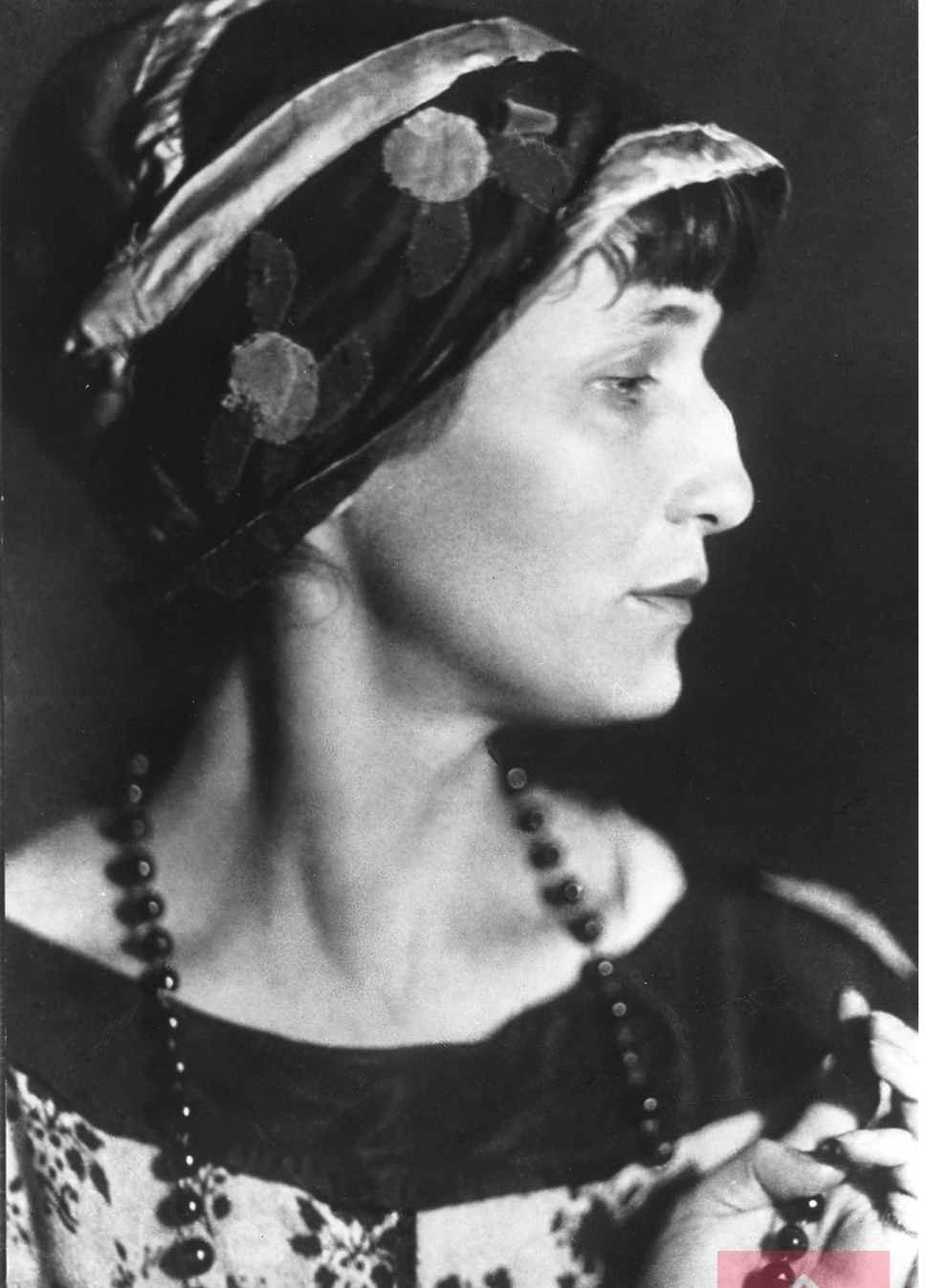 She always knew how to say things very briefly, without sounding pathetic or confused. Sarcastic? Yes. Stilted? Perhaps. But no wasted words and beating around the bush. Her famous ‘Requiem’ poem (describing the terrifying years of Stalin purges) made her the rare voice for the downtrodden.
She always knew how to say things very briefly, without sounding pathetic or confused. Sarcastic? Yes. Stilted? Perhaps. But no wasted words and beating around the bush. Her famous ‘Requiem’ poem (describing the terrifying years of Stalin purges) made her the rare voice for the downtrodden.
Akhmatova never supported the communist regime, which like a millstone, mercilessly thrashed her fate: her husband, poet Nikolay Gumilyov, was arrested and executed, her son was exiled to Siberia for anti-Soviet views and her poems were not allowed to be published by censorship. And yet she knew that people needed moral support in the fight against fascism. Her poem ‘Courage’, written in 1942, when Akhmatova was evacuated to Tashkent (then part of the Uzbek SSR), centers on the nation’ struggle for freedom and peace.
‘Courage’
We know what trembles in the scales,
What has to be accomplished?
The hour for courage if all else fails,
With courage we are not unfurnished.
What though the dead be crowded, each to each,
What though our houses be destroyed? —
We will preserve you, Russian speech,
Keep you alive, Great Russian word
We will pass you to our sons and heirs
Free and clean, and they in turn to theirs,
And so forever
(Translated by Donald Michael Thomas)
- ‘Retribution’ by Ilya Ehrenburg (1891-1967)
During World War II, Ehrenburg, the author of ‘Prayer for Russia’, was a correspondent for the Soviet army’s Krasnaya Zvezda (Red Star) newspaper, maintaining national morale in the thick of the action.
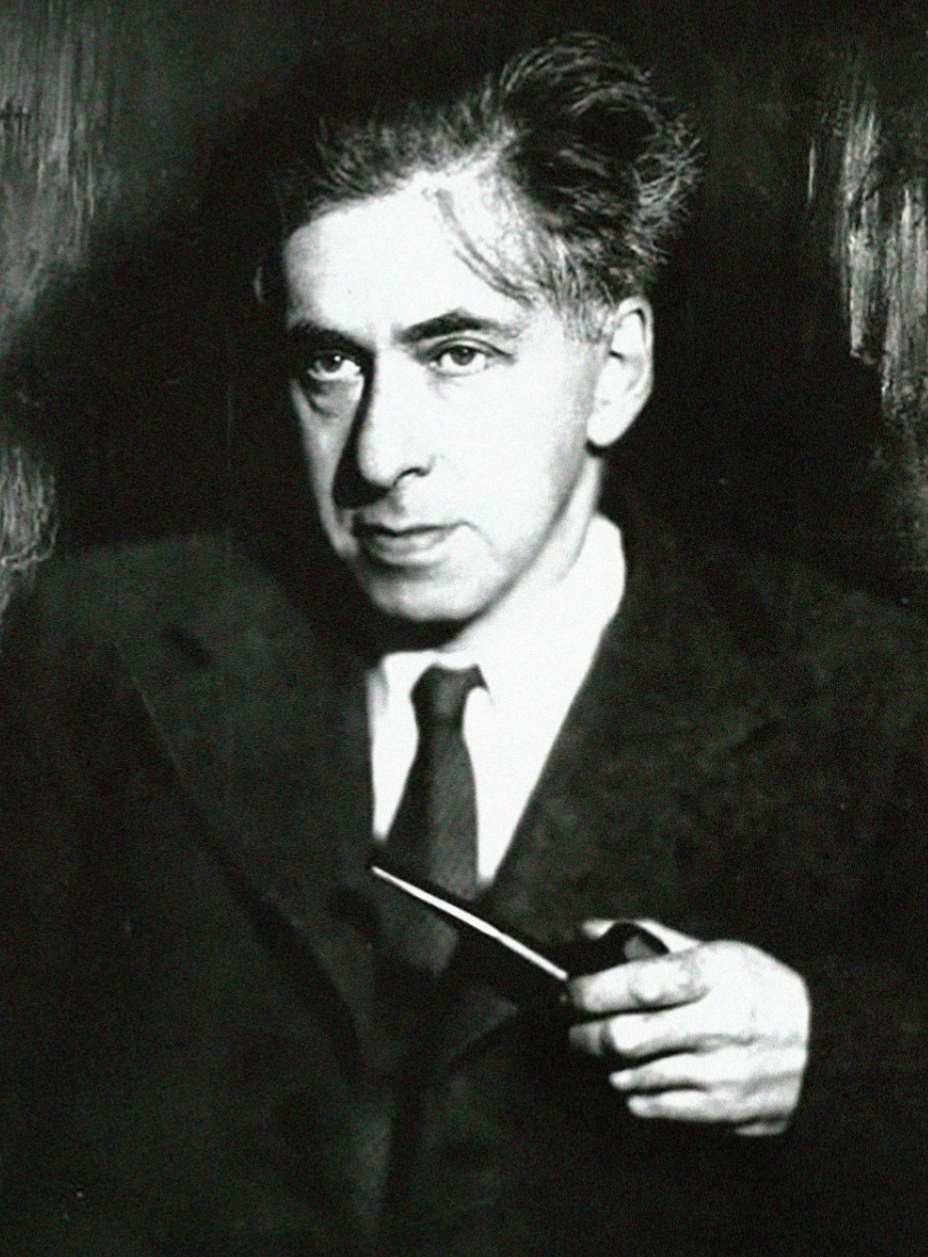 His articles were so popular that army commanders forbade soldiers to use old newspapers with Ehrenburg’s publications for kindling or making hand-rolled cigarettes. The man who had predicted the Holocaust hated fascism like sin.
His articles were so popular that army commanders forbade soldiers to use old newspapers with Ehrenburg’s publications for kindling or making hand-rolled cigarettes. The man who had predicted the Holocaust hated fascism like sin.
He co-wrote, along with Vasily Grossman, ‘The Complete Black Book of Russian Jewry’, recording first-hand documentary accounts of the mass murder of Soviet Jews, including the massacres of Babi Yar. ‘Retribution’ is a heart-breaking story of a girl who didn’t survive the Nazi occupation.
‘Retribution’
She lay beside the bridge. The German troops had reckoned
To cheapen her by this, Instead, her nakedness
Was like an ancient statue’s unadorned perfection,
Was like unspotted Nature’s loveliness and grace.
We covered her and carried her. The bridge, unsteady,
Appeared to palpitate beneath our precious load
Our soldiers halted there, in silence stood bare-headed,
Each transformed, acknowledging the debt he owed.
Then Justice headed westward. Winter was a blessing,
With hatred huddled mute, and snows a fiery ridge.
The fate of Germany that murky day was settled
Because of one dead girl, beside a shaky bridge
(Translated by Gordon McVay)
- ‘Saturday, June 21’ by Arseny Tarkovsky (1907-1989)
Tarkovsky was one of the finest Russian poets to have put verse to paper during the Soviet era.
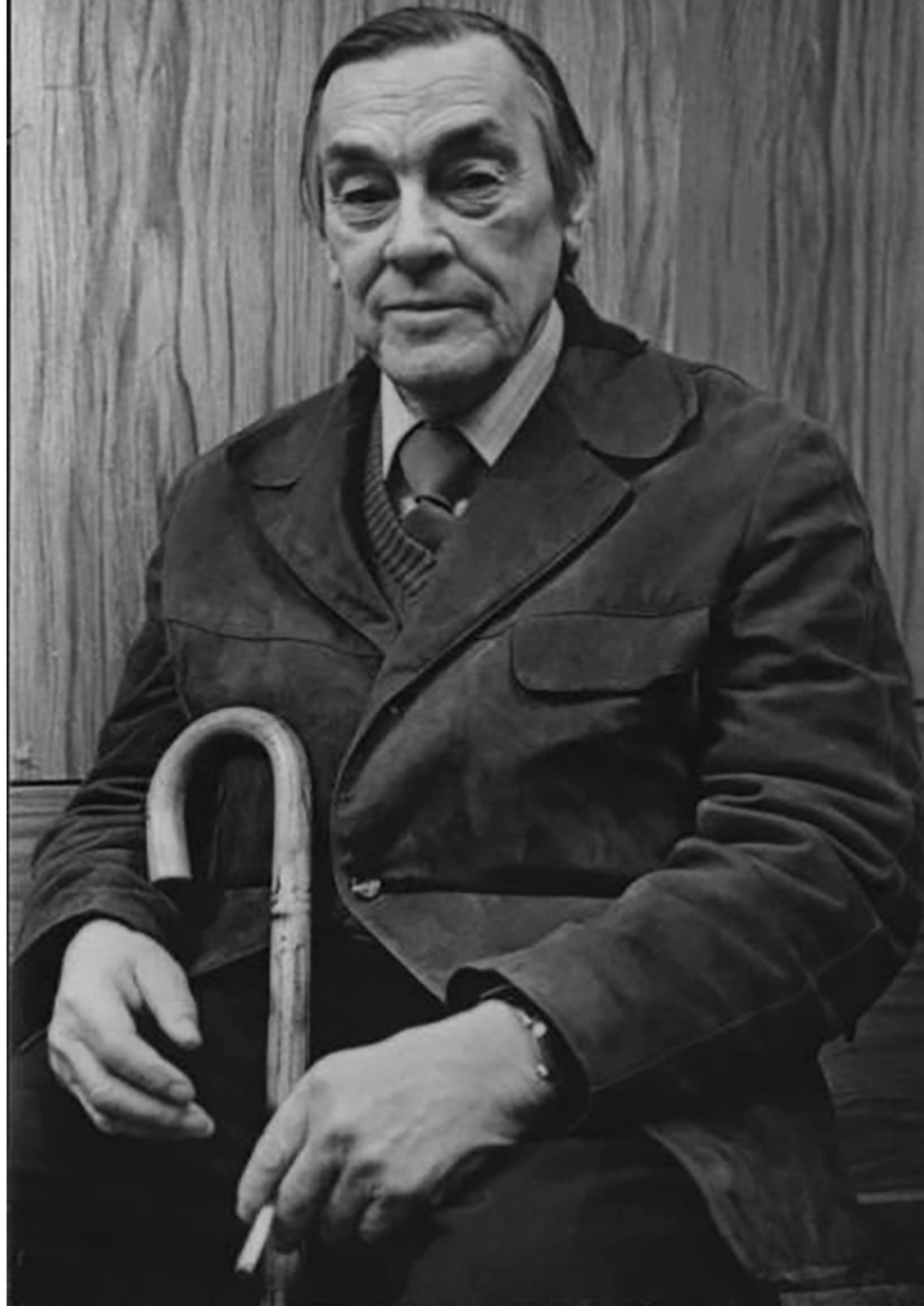 Although, during his lifetime, he was mostly known for translations of works by Asian poets, his famous son Andrei Tarkovsky, the director of ‘Ivan’s Childhood’, helped revive his father’s poems featuring his verses in ‘The Mirror’.
Although, during his lifetime, he was mostly known for translations of works by Asian poets, his famous son Andrei Tarkovsky, the director of ‘Ivan’s Childhood’, helped revive his father’s poems featuring his verses in ‘The Mirror’.
The Great Patriotic War began at 4 am, on June 22, 1941, when Nazi Germany attacked the Soviet Union. When World War II broke out, Tarkovsky was in Moscow, where he underwent military training with other writers. He was determined to join the army, but the state medical board refused to grant him permission. He wrote around eleven letters to the Soviet Writers’ Union, asking to send him into the battlefield.
In 1942, Tarkovsky finally became a war-correspondent at the ‘Boevaya Trevoga’ (War Alarm) army newspaper. Tarkovsky had to work in different genres – his poems praised the heroic exploits of soldiers, while the fables ridiculed the Nazis. The soldiers cut out his verses from newspapers to carry them in their breast pockets, along with documents and photographs of family members. In 1943, Tarkovsky sustained a leg injury, contracted gangrene and had to undergo six amputations.
In 1945, Tarkovsky wrote his epic verse, ‘Saturday, June 21’. It’s a flashback to the last peaceful day – June 21, 1941. Tarkovsky shares his experience as a first hand witness to war, endowed with the ability to know the fate of everyone he meets on this last pre-war Saturday.
‘Saturday, June 21’
There’s one night left to build fortifications.
It’s in my hands, the hope for our salvation.
I’m yearning for the past; then I could warn
Those who were doomed to perish in this war
A man across the street would hear me cry,
“Come here, now, and death will pass you by.”
I’d know the hour when the war would strike
Who will survive the camps and who will die
Who will be heroes honored by awards,
And who will die shot by the firing squads.
I see the snow in Stalingrad, all strewn
With corpses of the enemy platoons
Under the air raids, I see Berlin
The Russian infantry is marching in.
I can foretell the enemy’s every plot
More than intelligence of any sort
And I keep pleading, but no one will hear.
The passersby are breathing in fresh air,
Enjoying summer flowers in June,
All unaware of the coming doom
Another moment — and my vision disappears
I don’t know when or how I ended here.
My mind is blank. I’m looking at bright skies,
My window not yet taped by crisscrossed stripes.
(Translated by Olga Dumer)
- ‘Wait For Me’ by Konstantin Simonov (1915-1979)
In 1941, promising playwright and poet Simonov became a premier war correspondent with the official army newspaper ‘Krasnaya Zvezda’ (Red Star). He gradually rose through the ranks, becoming a senior battalion commissar, lieutenant colonel and a colonel after the war.
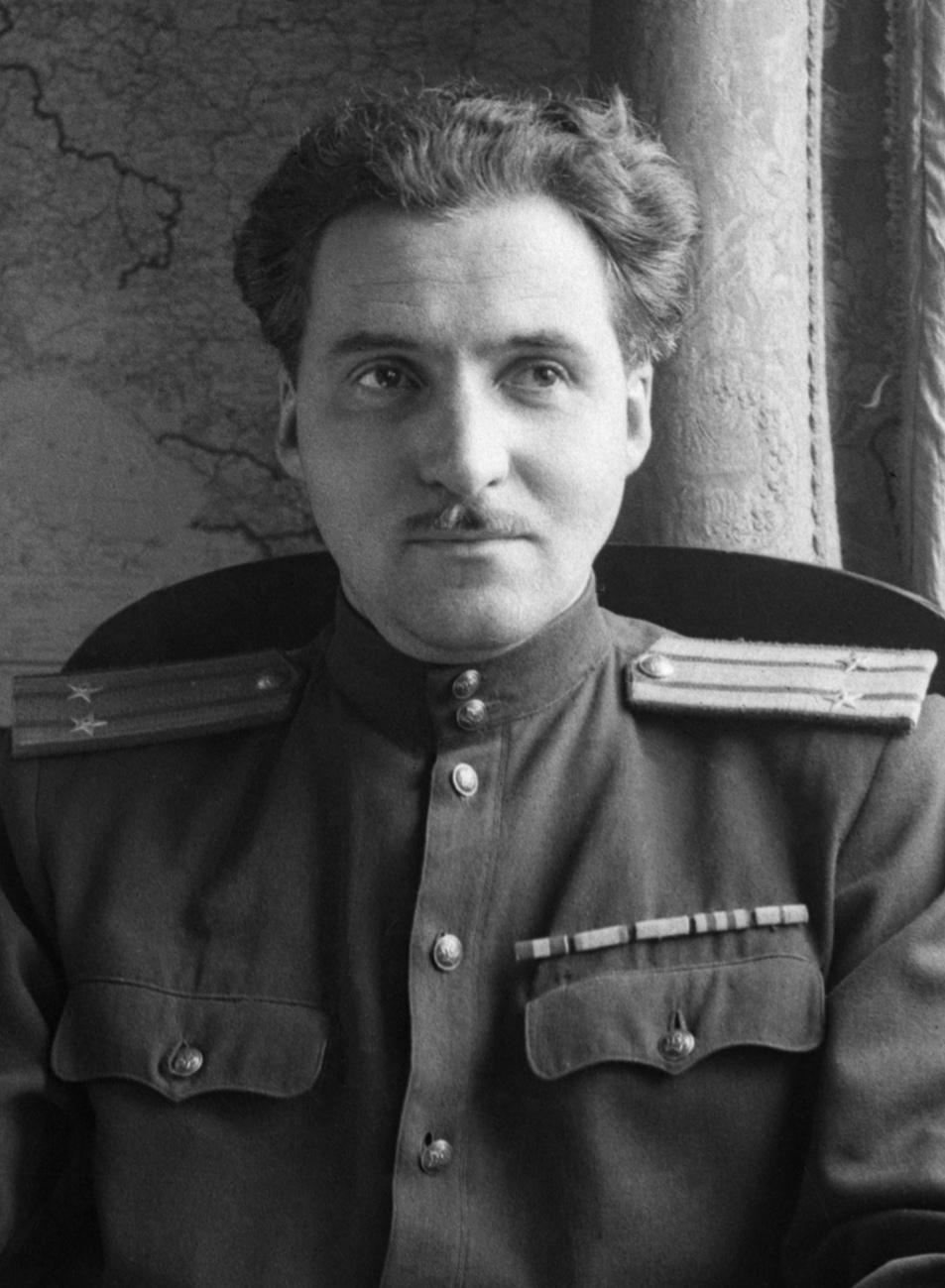 But, the turning point came in 1942, when ‘Pravda’ newspaper published Simonov’s poem ‘Wait For Me’ (dedicated to his wife, famous actress Valentina Serova). Something clicked and the verse instantly became a symbol of hope, loyalty and endurance for millions of soldiers. Some repeated it like a prayer as they moved into action, others sent it to their wives and mothers as a declaration of love.
But, the turning point came in 1942, when ‘Pravda’ newspaper published Simonov’s poem ‘Wait For Me’ (dedicated to his wife, famous actress Valentina Serova). Something clicked and the verse instantly became a symbol of hope, loyalty and endurance for millions of soldiers. Some repeated it like a prayer as they moved into action, others sent it to their wives and mothers as a declaration of love.
‘Wait For Me’
Wait for me, and I’ll return.
Only surely wait.
Wait, when yellow autumn rains
Bring on long regret.
Wait, when snow whirls in the air,
Wait, when there is sun,
Wait, when others have forgot
And their waiting’s done.
Wait, when letters come no more
From the far off lines,
Wait, when he who also waits
Wearies and repines.
Wait for me, and I’ll return.
Wish no happy lot
To the one who knows by heart!
“Time that you forgot”
Son and mother may believe
That I am no more,
Friends may give me up and grieve,
And may sit before
The fire, drinking bitter wine
To my memory
Wait. And with them gathered there
Do not drink to me.
Wait for me, and I’ll return
Spite of all mishap
Let the one who did not wait
Say, “A lucky chap.”
Not remembering how when I
Struggled under fire
By your waiting for your own
You won your desire.
Only you and 1 will know
How I struggled through —
Simply, you knew how to wait
As no other knew
(Translated by Dudley Randal)
- ‘So What If I’d Gone Through It All?..’ by Yuri Levitansky (1922-1996)
Good poetry begins where personal tragedy starts, they say. Levitansky was a second-year student at the Moscow institute of Philosophy, Literature and History when WWII broke out. He volunteered to fight in the war, became a lieutenant, then a war correspondent, with his first poems published in 1943 in front-line newspapers.
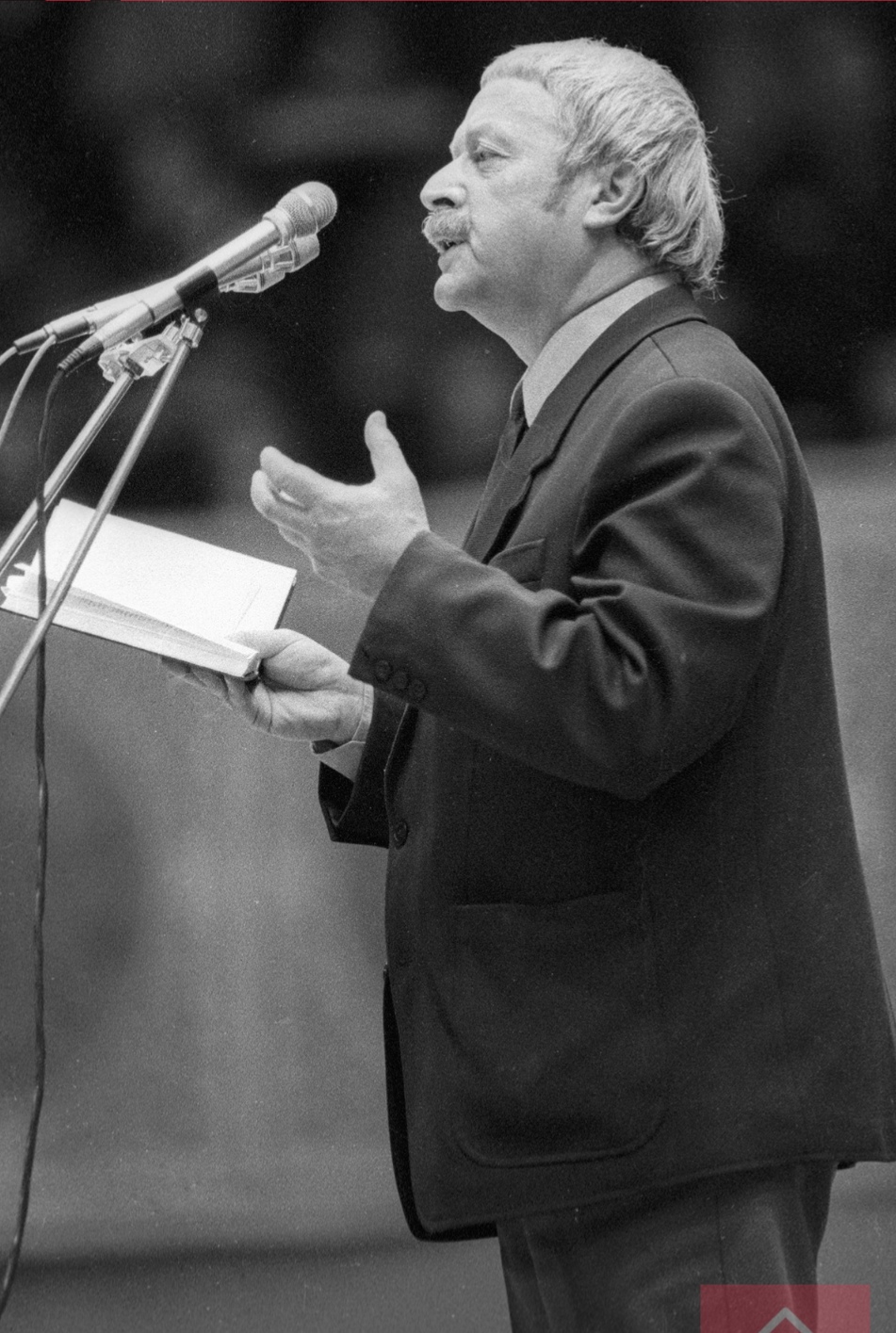 Levitansky was awarded an Order of the Red Star, as well as a series of medals, including For the Defense of Moscow and Victory over Germany, for his military service.
Levitansky was awarded an Order of the Red Star, as well as a series of medals, including For the Defense of Moscow and Victory over Germany, for his military service.
Levitansky tried to assess WWII (known as the Great Patriotic War in Russia) and its profound impact on the society. ‘So What If I’d Gone Through It All?..’ is an attempt to channel his war memories and fears into poetry.
‘So what if I’d gone through it all?’
So what if I’d gone through it all?
It’s been a while. I don’t recall.
I can’t recall dates any more,
Nor the locations of attacks
(I am one atom of that war,
A nameless private, I came back.
I am one shot’s mistaken trace,
I’m bloody ice of January.
I am imprisoned in that ice,
Like a fly in amber jewelry.
So what if I had seen it all?
I’ve purged it all. I can’t recall.
I don’t remember dates nor days,
Nor names of villages and towns
(I am the hoarse scream in the fray,
I’m foaming horses falling down.
I am a day that will take lives,
I am soldiers in a distant fight.
I’m somber torch by common graves,
And a dug-out’s feeble candlelight.
So what if I had seen it all,
That mad “To be or not to be.”)
It’s faded almost past recall.
I want to crush that memory.
I don’t still dwell on that past war,
The war still dwells inside of me,
And tongues of the Eternal Flame
Are licking at me steadily
No tools exist to have me hewn
Out of that war, out of those years;
There are no medicines to cure me
Of that winter, of those snows
We cannot part, it can’t be done:
I’m in that snow, I’m on that ground,
Until the snows without a sound,
Where all our tracks merge into one…
So what if I had seen it all…
(Translated by Tanya Wolfson)
- ‘Goodbye Boys’ by Bulat Okudzhava (1924-1997)
Like many of his peers, in 1941, at the age of 17, Okudzhava volunteered for the Red Army infantry and, from the following year, participated in the war against Nazi Germany. The deprivations and sacrifices of the war run through his poems like an echo reverberating out from the past.
 Okudzhava, whose father was arrested and executed in the Great Purge, made his name as a singer, songwriter, poet and author of the ‘Midnight Trolleybus’ song (his other songs appeared in more than 80 movies). It was his ability to write heart-stirring poems that appealed to wide audiences.
Okudzhava, whose father was arrested and executed in the Great Purge, made his name as a singer, songwriter, poet and author of the ‘Midnight Trolleybus’ song (his other songs appeared in more than 80 movies). It was his ability to write heart-stirring poems that appealed to wide audiences.
In 1961, Okudzhava wrote an autobiographical novel, ‘Be Well, Schoolboy’ in which he described his own experience of going to war at the age of 17. It’s not so much about heroism and self-sacrifice, but rather about fear, desire to survive and the price of life. Okudzhava’s ‘Goodbye Boys’ poem written in 1958 is also about that.
(Photo: Viktor Temin)
‘Goodbye Boys’
Monster war, take a look at your handiwork:
In our courtyards the silence is keen.
Our young boys have grown serious suddenly.
All at once, much too soon, they are men.
We got barely a glimpse of the somber eyes
When as soldiers they left, one by one.
It’s time for goodbye, my boys.
Boys, goodbye!
You must try, you must try to return.
Do not hide, do not crouch, remain proud and tall,
Spare no bullets and fight as you’ve sworn.
And do not spare yourselves, my boys,
But after all,
You must try, you must try to return.
Monster war, are you pleased with your handiwork?
No more weddings — just loves laid to waste.
Our girls’ bridal gowns have been handed down
To kid sisters who don’t reach their waist.
Now it’s army boots everywhere, all about,
And green wings of the new epaulets.
Never mind about gossips, girls.
Have no doubt:
We will find time to deal with them yet.
Let them yap that it’s merely a game you play,
Waging war without cause, out of turn
It’s time for goodbye, my girls.
Girls, goodbye!
You must try, you must try to return.
(Translated by Tanya Wolfson)
______________________